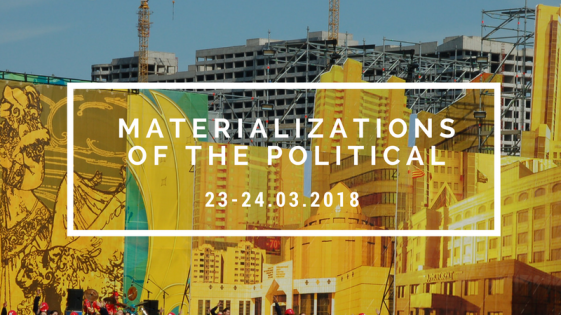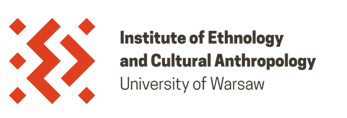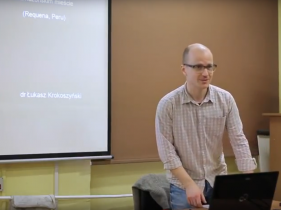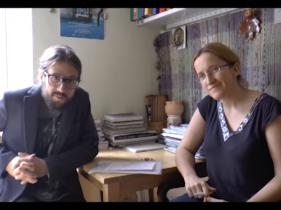Materializations of the political

Politics and the political have long been a crucial area of anthropological inquiry. In its broadest sense, the term ‘political’ refers to a contentious dimension present in, or indeed constitutive of, all social relations (Foucault 1982; Mouffe 2005). More narrowly, ‘politics’ is used to describe the specific strategies social actors use to achieve their goals in competition with others, or modes of intervening, ‘arts of government’ (e.g., Gledhill 2000; Vincent 1994, 2005). Anthropology’s key contribution to the multi-disciplinary study of the political rests with our discipline’s hallmark method: ethnography. The power of ethnography to pin down that elusive object, ‘the political’, to feel for its boundaries and substance in ways more tactile, more concrete, and at once more open to serendipity and surprise than allowed for by other kinds of sociological inquiry, is widely recognized today across the neighbouring disciplines (e.g., Schatz 2009). In this conference, we invite ethnographers – anthropologists and not only – to join a conversation on how the political variously materializes in social life.
Programme
Friday, 23 March
10:00-12:30 – Special session in memory of Georges Balandier (in Polish only)
10.00 – 10.10 Welcome note (prof. Anna Malewska-Szałygin, dr Iwona Kaliszewska)
10.10 – 10.25 Prof. Jacek Pawlik, Wspomnienie o Georges’u Balandierze
10.30 – 11.15 Prof. Adam Pomieciński, Afryka i świat w teorii społecznej Georges'a Balandiera.
11.15 – 11.30 Discussion
11.30 – 12.15 Prof. Jacek Pawlik, Władza i zmiana. Antropologia polityczna Georges'a Balandiera.
12.15 – 12.30 Discussion
12:30-13:45 – Lunch
13:45–15:15 – Keynote Lecture: Dr Hannah Knox (University College London), Infrastructural Tests’: The Materialization of a Future not to be?
15:15–15:30 – Coffee break
15:30–17:00 – Panel 1, Infrastructures and Industry. Discussant: Dr Hannah Knox, University College London
- Dr Łukasz Krokoszyński, University of Warsaw, Broken pipe on the Junín Street: the business of making progress in an Amazonian town (Peru)
- Rosa Sansone, University of Manchester, Megacity development in post-revolutionary Tunis: sensing the political in its tacit dimensions
- Dr Mateusz Laszczkowski, University of Warsaw, Tracks of Contention: Materializing thePolitical in Infrastructural Conflict in Italy
- Dr Anna Szołucha, Polish Institute of Advanced Studies, Unconventional resources: impacts, materialities and the politics of shale gas developments
Saturday, 24 March
10:00–11:30 – Panel 2, Materializations of the State. Discussant: Dr Tomasz Rakowski, University of Warsaw
- Dr Deana Jovanovic, Keele University, Materialization of the state-by-proxy: ambivalence andthe political in a Serbian industrial town
- Dr Iwona Kaliszewska, University of Warsaw, How checkpoints come to matter in the North Caucasus
- Dr Ainhoa Montoya, University of London, The politics of a legal artefact: UN-based discussions on the international legally binding treaty on business actions
- Dr André Thiemann, Central European University, On the road to self-government: the right to infrastructural development and the boundary work of a Serbian Local Council
11:30–12:00 – Coffee Break
12:00–13:30 – Panel 3, Politicizing Environments. Discussant: Dr Piotr Cichocki, University of Warsaw
- Jonathan Alderman, University of St. Andrews, Mountains as actors in the Bolivian Andes: the interrelationship between politics and ritual in the Kallawaya ayllus
- Dr Elizabeth Turk, University of Cambridge, The shifting terrain of territorialized state reverence in post-socialist Mongolia
- Dr Thomas White, University of Cambridge, A multispecies ethnography of the state: livestock and the politics of affect in a Chinese border region
- Marcin Skupiński, University of Warsaw, Landscapes of “Bad Change” and Forests of the Frontier. Environment, Transition and Capitalism in Highland Transcarpathia
13:30–14:30 – Lunch
14:30–16:00 – Panel 4, Body & Spirit. Discussant: Dr Anna Witeska-Młynarczyk, University of Warsaw
- Dr Marta Songin-Mokrzan, University of Łódź, People and machines: a reflection on the ergosystem of a contemporary production plant
- Jacqui Lavis, Australian National University, Fluid and unbounded: affect experiences in Aboriginal healing
- Dr Ewa Maciejewska-Mroczek, University of Warsaw, ‘Tactile crease’: political materialization of anti-IVF discourses in Poland
- Dr Joanna Mroczkowska, Polish Academy of Sciences, The geopolitics of meat: foodways as resistance and identity building in Polish farming communities
16:00–16:30 – Concluding notes and discussion




